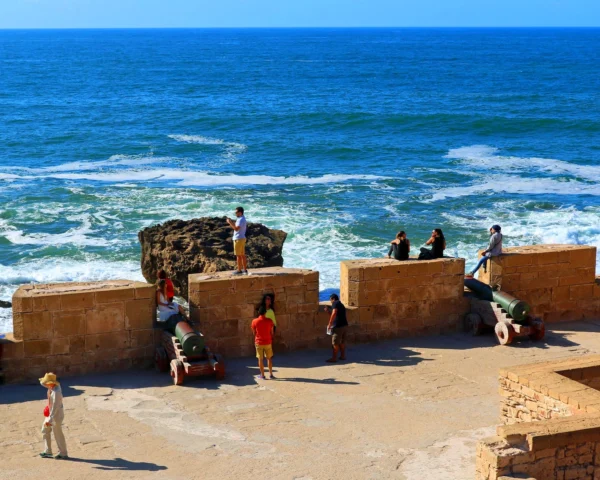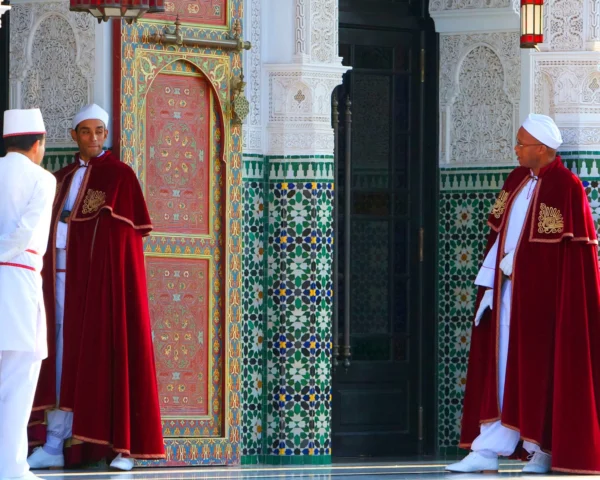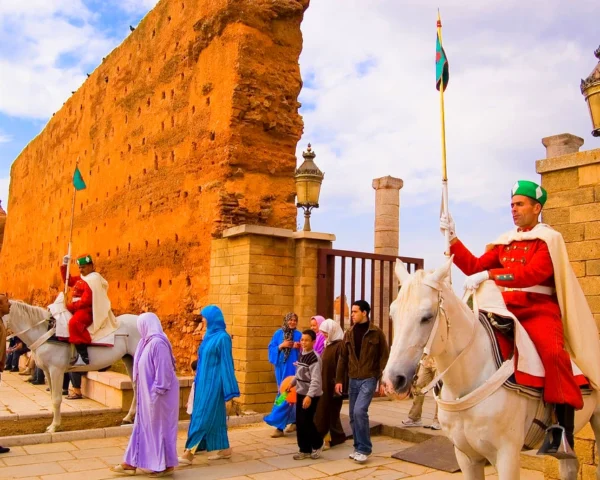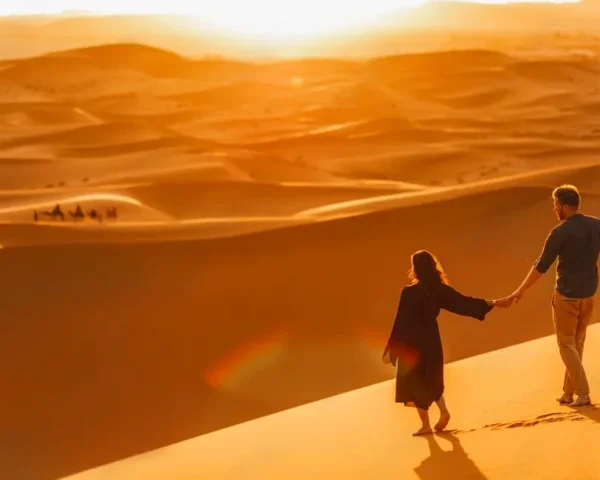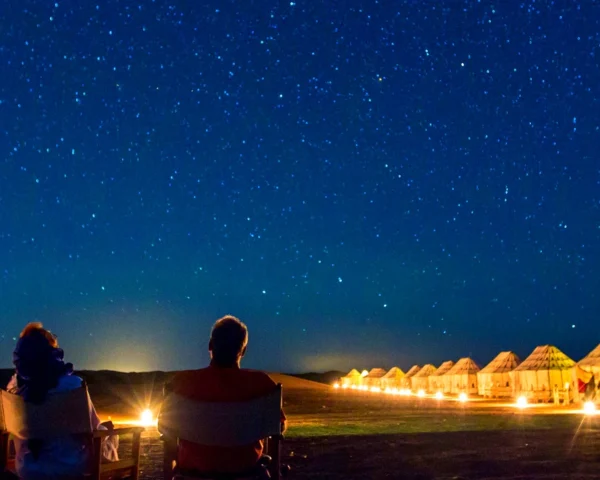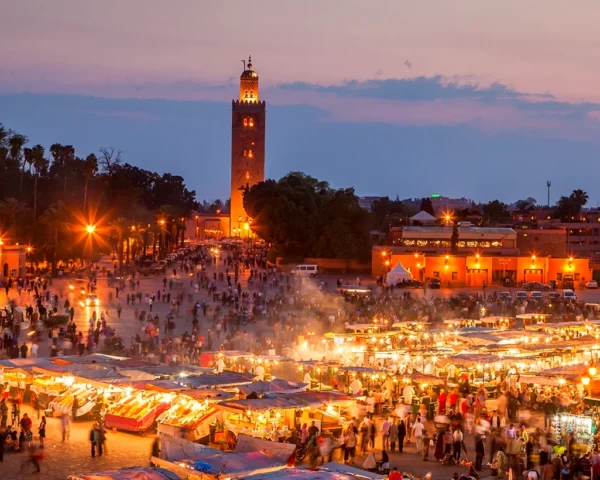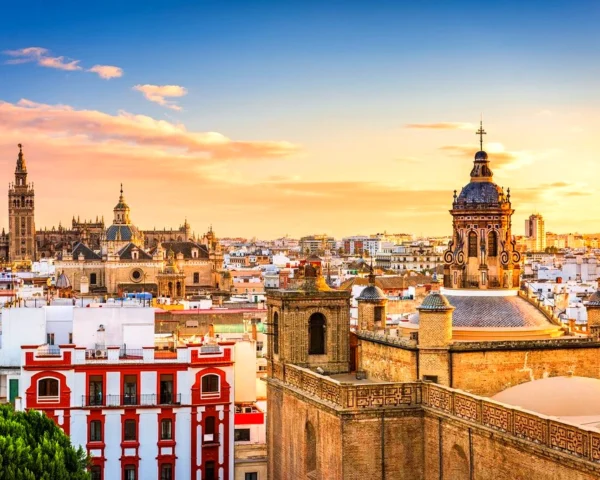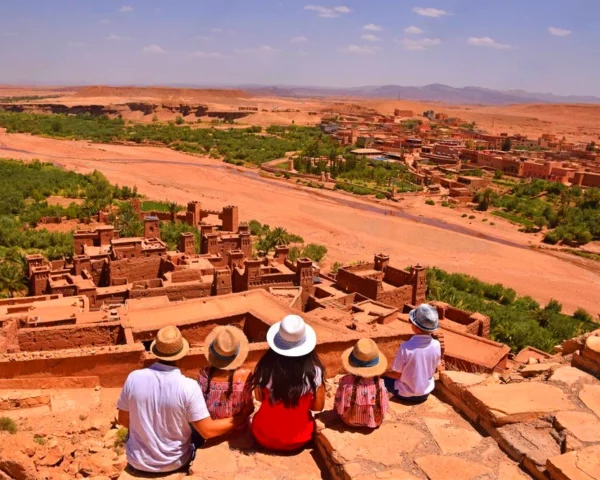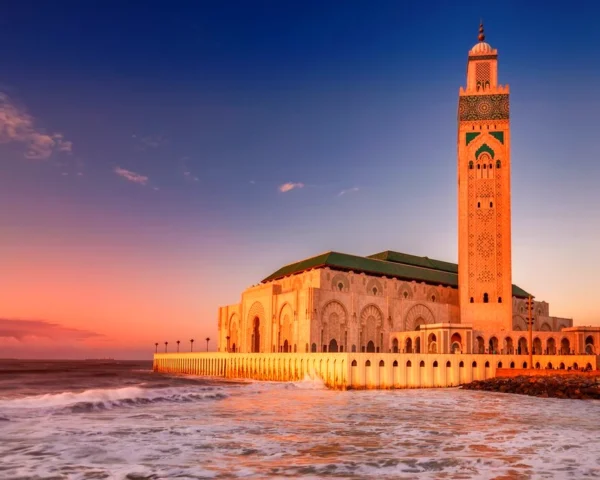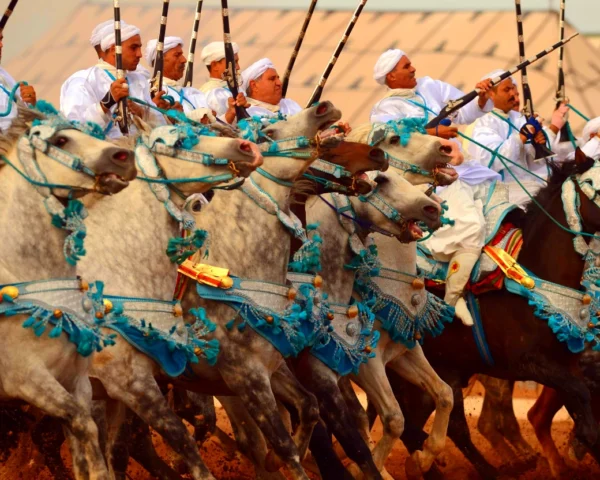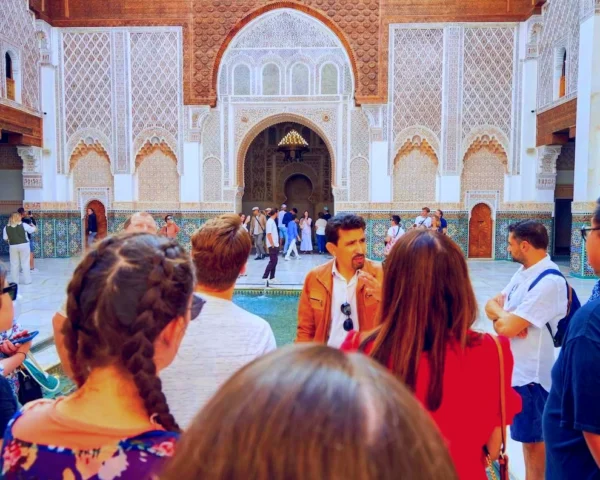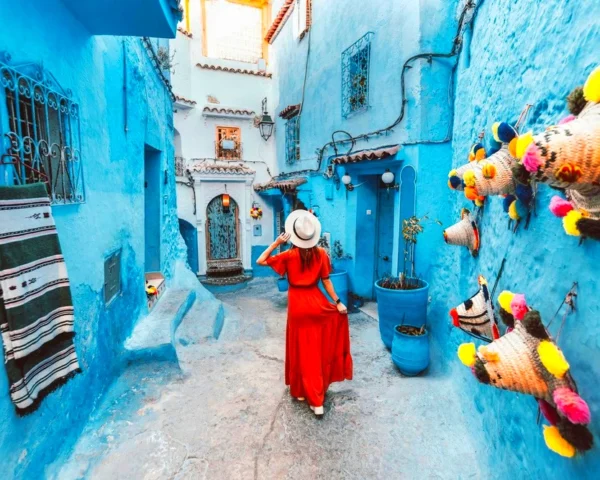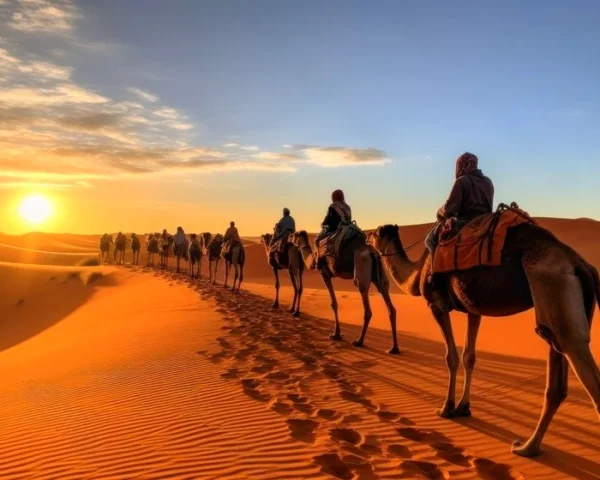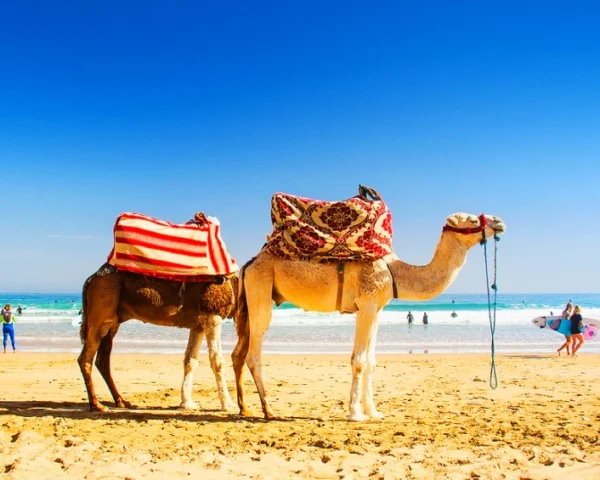Morocco Travel Tips
Drink Mint Tea
Moroccan tea, also referred to as “Maghrebi mint tea” or simply “Moroccan mint tea,” is deeply intertwined with the country’s tea culture, symbolizing hospitality. A customary gesture of welcoming guests includes offering them tea, a practice so prevalent that even while casually shopping in a store, you might find yourself presented with a cup. Typically, this tea is a harmonious combination of green tea, fresh mint leaves, and sugar. Embracing a cup of this traditional beverage is not just a sign of respect and gratitude but can also lay a favorable foundation for engaging in price discussions!
Greetings
In formal settings, it is customary to offer handshakes as a form of greeting to individuals of both genders. People of the same gender may share a warm hug or cheek kisses, often starting from the left cheek. Initiating a meeting with a cordial “Salam Alaikum” and a handshake is considered polite, especially when meeting someone for the first time.
Use Your Right Hand
Moroccan tradition regards the left hand as impure. When meeting others or exchanging objects, it is customary to extend the right hand as a sign of respect. Additionally, it’s proper etiquette to use only the right hand when dining or handling food, but you can use both hands when using utensils.
Shoes Off
In Morocco, it is common practice to take off your shoes before entering a residence or a mosque. Certain restaurants and establishments also adhere to a no-shoes rule. When in doubt, observe the locals or simply inquire to ensure you are following the appropriate custom.
Haggle Over Prices
In Marrakech, immersing yourself in the vibrant shopping scene stands out as a top activity. Street markets (souks) and souvenir shops play a significant role in boosting Morocco’s tourism sector. Engaging in the traditional practice of bargaining is customary, with vendors anticipating a brief negotiation before finalizing a sale. The initial price quoted often hovers 25–50% higher than the seller’s actual target, allowing room for haggling. Opting to pay the asking price outright is an option, but embracing the art of negotiation adds a unique cultural dimension to your shopping experience.
Cash is King
In major urban centers, credit cards find wide acceptance, while cash remains the primary mode of payment in rural settings, smaller shops, and local markets. It’s essential to ensure you have an adequate amount of cash on hand for daily transactions. Additionally, Moroccan ATMs are known for their unreliability, particularly in bustling tourist spots where machines frequently run out of cash. To mitigate this issue, you might have to attempt multiple ATMs or inquire at your hotel’s reception for currency exchange services. I highly recommend refraining from withdrawing excessive cash, as this can make you a target for theft. It’s advisable to store any extra money securely in the hotel safe.
Don’t Expect Much Personal Space
Moroccans tend to be warm and outgoing individuals, often having a smaller sense of personal space than what you might be used to. It’s typical for them to engage in close conversations and view gestures like touching the arm or shoulder as friendly. Regrettably, despite the progress of modern times, women exploring Morocco often face unwelcome harassment in public spaces. It’s essential to endure any behavior that causes discomfort.
Show Respect for Religion
Morocco has Islam as its dominant religion, emphasizing the importance of respecting religious customs and traditions. Visitors should be considerate of prayer timings and etiquette at religious sites and refrain from disrupting people engaged in prayers or ceremonies with flashy cameras.
Note that Fridays, a significant holy day throughout the country, may see the closure of certain shops and attractions. In this Muslim-majority nation, dressing modestly, especially in conservative regions, is highly recommended. Women, in particular, should carry a scarf or shawl to cover their shoulders at religious sites and ensure attire covers their wrists and ankles when visiting mosques.
Tipping Culture
Tipping in Morocco, referred to as “baksheesh,” is a widely practiced custom to show appreciation for good service. Here are some general tipping norms to keep in mind:
- In restaurants and cafés, it is customary to leave a tip equivalent to about 10% of the total bill. High-end restaurants may include a service charge in the bill. Additionally, it is usual to tip hotel service personnel a nominal sum for their assistance, with 10 to 20 Moroccan dirhams (MAD) per service being considered appropriate. For private tour guides or drivers, a recommended tip ranges from 100 to 200 MAD per day.
- While tipping taxi drivers is not obligatory, rounding up the fare or adding a small gratuity is a common practice.
TRAVEL AGENCY OR TOUR OPERATOR?
Looking to collaborate with a dependable and trustworthy travel agency? MoroccoHolidays.org is here to assist you in exploring the wonders of this destination.
CONNECT WITH AN EXPERT

